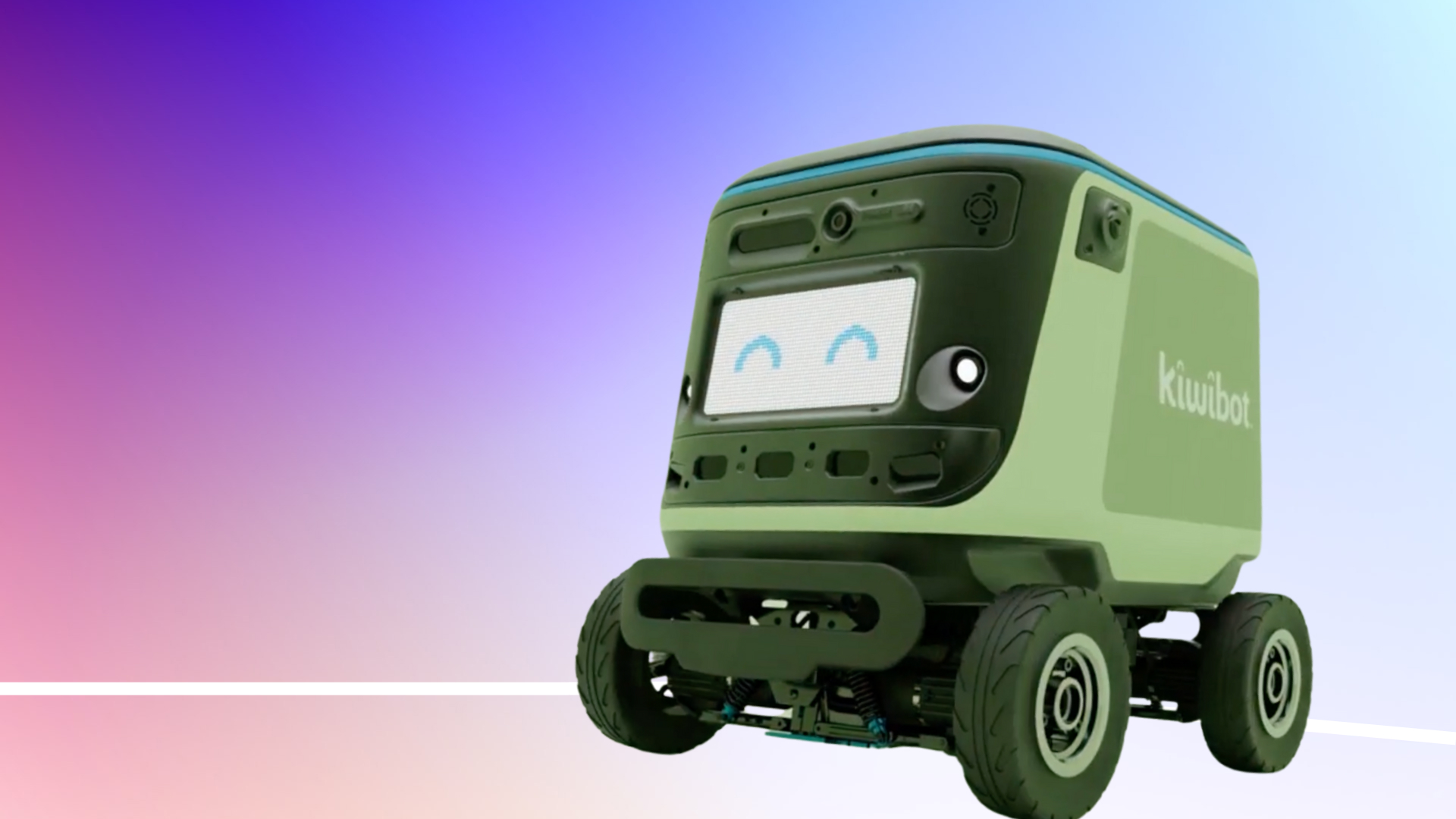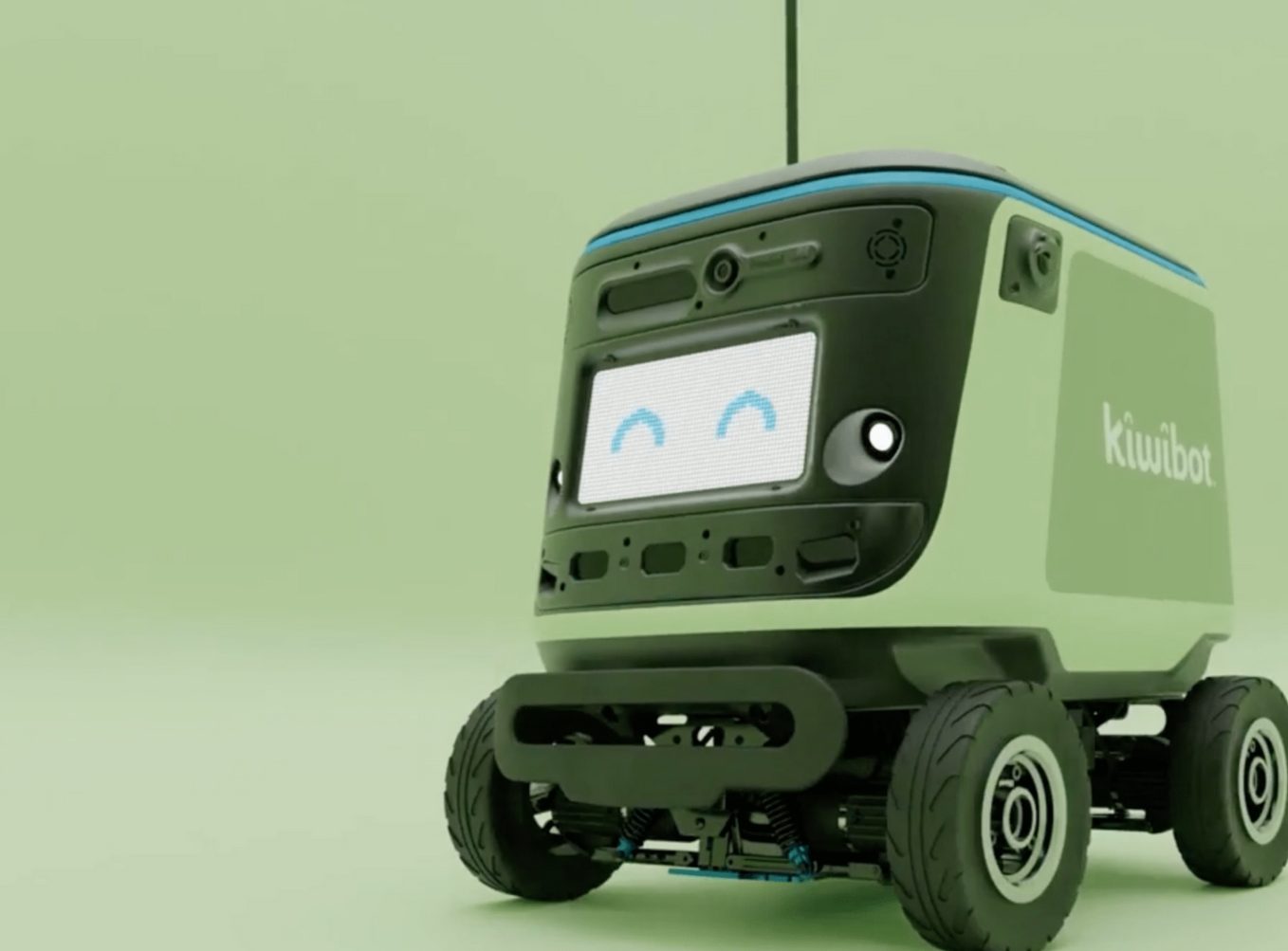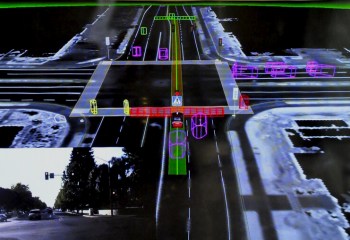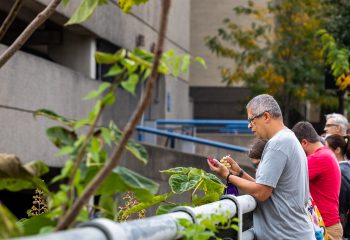Pilot projects showed autonomous delivery can be safely and successfully deployed in controlled environments, but much more than smart tech is needed for broader adoption in U.S. cities
MIAMI, FLORIDA – Pilot projects supported by the John S. and James L. Knight Foundation testing the use of autonomous delivery robots in four U.S. cities found the technology works well in controlled environments such as college campuses and identified many opportunities for expansion, but at present, use cases remain limited due to technical and environmental limitations such as the quality of urban infrastructure.
Due to increased demand for delivery during the pandemic, sidewalk delivery robots have been deployed in greater numbers the past few years. While there is a lot of attention on these technologies, city officials often don’t have direct experience with them, making regulation and addressing community concerns challenging.
The pilots with Kiwibot allowed the four communities of Detroit, Miami-Dade County, Pittsburgh, and San Jose to learn more about how autonomous delivery technology works in the real world and utilized a unique community engagement model that provided residents the chance to provide direct feedback about the robots and informed city regulatory practices.
A report on the pilot projects released today lays out clear lessons cities can use to deploy autonomous technologies and identifies the non-technical functions of deployment – such as onboarding support for local small businesses, assuring shared infrastructure like sidewalks and crosswalks are passable, and allowing for direct community engagement – critical to success.

“Autonomous technology offers tremendous opportunity for progress, but in order to realize its full potential, we must increase testing and pursue intentional strategies to address real community needs,” said Lilian Coral, director of Knight’s national strategy and technology innovation program. “This pilot with Kiwibot established a model community education program so residents understood why these delivery robots were rolling around the city and how they work. This increased excitement and reduced skepticism from residents and local business partners alike, while also allowing government agencies to partner and learn more about the technology and its impact on the community. We think this is a roadmap for how to deploy autonomous technology in cities across the country.”
The Knight Foundation launched the $5.25 million initiative in 2018 to engage local residents around autonomous technologies to ensure they reflect community input and meet local needs. Funding supported the pilots in four cities, with technical assistance and evaluation provided by Cityfi and University of Oregon’s Urbanism Next Center.
Among the report’s takeaways:
- The technology works in controlled settings and was deployed safely. There were no reported pedestrian safety incidents in more than 3,000 completed trips during the pilots. Where the robots struggled with delivery, it was often due to lack of ADA accessible infrastructure, such as overgrown trees and blocked or broken sidewalks – the same infrastructure impediments that also impact residents safely getting around cities in their everyday lives. Investment by both the private and public sector in this shared infrastructure is required to scale autonomous delivery.
- Current use cases are limited, but there are many opportunities for expansion in urban environments. Today, the robots have a delivery range of 1-1.5 miles. As a result, some small businesses were hesitant to deliver their products via robots since many deliveries require a longer distance. At this point, the technology works well in places like college campuses but runs into challenges where accessible infrastructure can’t be guaranteed.
- Demonstrations and community engagement were essential to addressing the public’s skepticism and sparking curiosity. The pilots engaged residents in every city — from demonstrations at farmers markets to public meetings. The most common sentiments were curiosity about the robots and anxiety around the safety of the technology, privacy, and potential impact to jobs. Public engagements identified clear potential beneficial use cases (such as: helping people with disabilities get deliveries or reducing travel time on smaller trips like lunch breaks) – some of which the technology is ready to do today, and others which would require more testing and refinement.
- There is a need for more willing private sector partners to pilot autonomous products. Kiwibot was an active and willing partner in this city-led effort and worked hand-in-hand with cities and communities to drive results. If autonomous technology wants to truly fill community needs, more public-private partnerships and evaluations are needed.
- AV delivery regulation at the city-level provides necessary flexibility. Cities benefit from exposure to the technology and hands-on collaboration with private companies while challenges with this technology are being resolved. At this time, it would be challenging to enact state-level regulations that are flexible and enforceable enough when states have little to no exposure to the technology and what it can or cannot do.
Read the full report here.
For media inquiries, please contact Kevin Liao, [email protected]
###
About the John S. and James L. Knight Foundation
We are social investors who support a more effective democracy by funding free expression and journalism, arts and culture in community, research in areas of media and democracy, and in the success of American cities and towns where the Knight brothers once published newspapers. Learn more at kf.org and follow @knightfdn on social media.
About Kiwibot
Kiwibot was founded in 2017 and launched its first pilot at the University of California-Berkeley campus. The company is on a mission to revolutionize food delivery by utilizing semi-autonomous robots; they have made over 200,000 deliveries on university campuses and across US cities to boost opportunities for locally-owned businesses and grant equitable access to food, medication, and libraries. The service model allows customers to launch a last-mile delivery system at a fraction of the time and cost, without the hassle of hiring a courier.
About Cityfi
Cityfi is an urban change management consulting firm. Cityfi advises cities, corporations, foundations and start-ups to help understand and navigate the increasingly complex urban landscape, facilitating new models and partnerships to make rapid, significant and high-return catalytic change. Learn more at cityfi.co.
About the Urbanism Next Center at the University of Oregon
The Urbanism Next Center conducts research and convenes partners from around the world to understand the impacts of new mobility, e-commerce and urban delivery, and autonomous vehicles on the built environment. Going beyond these emerging technologies, we explore the possible implications on equity, health and safety, the economy, and the environment to inform decision-making that supports community goals.
Urbanism Next brings together experts from a wide range of disciplines including planning, design, development, business, and law and works with the public, private, and academic sectors to help create positive outcomes from the impending changes and challenges confronting our cities. Learn more at www.urbanismnext.org.




